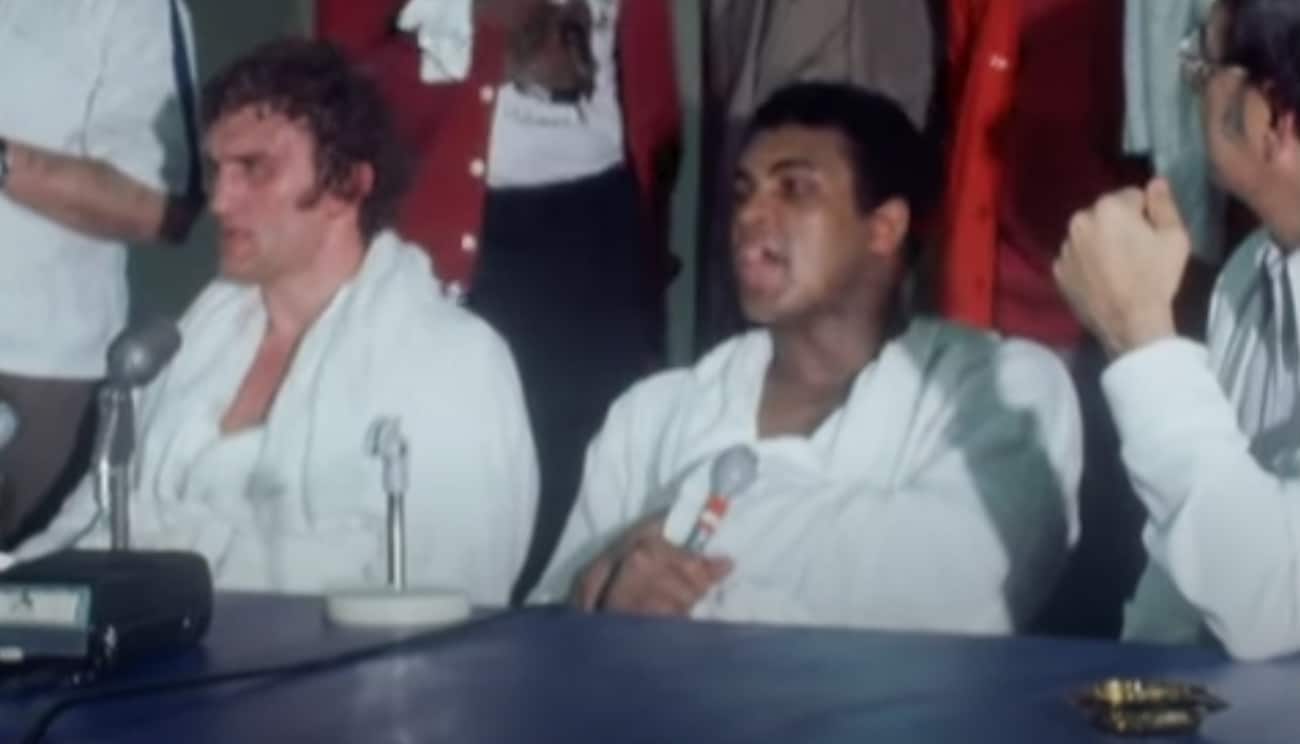One would have thought a heavyweight boxer who achieved the following: European champ three times, British and Commonwealth champ twice, picked up big wins over the likes of Jimmy Ellis, Mac Foster, Jose Luis Garcia, Chuck Wepner, and Henry Cooper, took both Muhammad Ali and Joe Frazier the distance (twice in the case of Ali) would have got praise and respect in equal amounts.
But with Joe Bugner it was all so different, it was all so unfair. Never has a British fighter been so badly, in Joe own words, “stitched up” by the media. Bugner, who was born in Hungary and came over to Britain as a young man, saw his boxing career turned on its head one day in 1971.
It was in March of that year when a 21-year-old Bugner fought national treasure Henry Cooper for the British, Commonwealth, and European titles. Bugner had the bad luck of being awarded a close, debatable decision over the 37-year-old Cooper. It’s fair to say nobody ever forgave Bugner.
Certainly not the press, who turned on him in a shockingly aggressive fashion. Bugner, of course, had nothing to do with the scoring of the fight, but Cooper’s many millions of fans (a good number of them working for the British newspapers of the day) took the loss even worse than Henry did. Bugner went on to fight a number of the best heavyweights from the golden era, yet he never came close to getting his just due.
Bugner was “boring,” he was “negative,” and he had no fighting heart. Bugner fought to survive. The press said so many bad things about Bugner, some of them worse than these examples. Never did the press get behind Bugner the way it should have been. But Bugner could fight hard and he did fight hard – see his gutsy showing against Joe Frazier in the summer of 1973.
Bugner went down from a massive Frazier left hook late in the fight but he got up and came back at Joe and his smoke, even wobbling the former heavyweight champ’s legs and almost scoring a knockdown of his own. Today, such a fine effort against as big a star as Frazier would have earned a British fighter a ton of praise/ TV appearances, even a hero’s welcome. But not Joe.
He had lost a non-title fight with Ali previously, and in the return with Ali, which was Bugner’s one and only shot at the world title (taking place on this day back in 1975), the press really laid into him. In sweltering hot Kuala Lumpur, Ali decisioned Bugner over 15 rounds. Afterwards, the champ went to the hospital to recover from dehydration, and Bugner supposedly had a great time. Bugner recalled years later how he had been the victim of a “right set up,” as a newspaper got him to pose in the swimming pool (placing a champagne glass in the shot).
Again the fans believed what they read and the dislike for Bugner grew. In truth, however, Bugner said he had never been so tired after the Ali title fight.
As an old fighter – one who was still capable of taking care of himself; Joe being a fine defensive fighter – Bugner came back (more than once) and he was stopped by the latest British hero, Frank Bruno. The 1987 stoppage loss was something Bugner deserved in the opinion of those misinformed fans who never forgot the Cooper fight, or the so-called non-efforts from Bugner.
Today all but vanished from public view (Joe suffered a heart attack at the age of 64, this in 2014), Bugner lives in Australia. British boxing owes Joe one huge apology and it’s time it came while there is still time (Bugner now being 72 years old).
27 rounds with Ali, 12 ferocious rounds with Frazier, a 12 round split decision loss to Ron Lyle, all those big wins and titles claimed. Bugner’s career was in fact quite exceptional. And Bugner never forgave the British media for the way they treated him. Who can blame him?
Bugner, as the saying goes, fought ’em all, and he defeated a good number of them. It really is amazing how the media can either big up or bring down as talented a fighter as the man born Jozsef Kreul Bugner.
Final record: 69-13-1(41). Stopped just four times.

